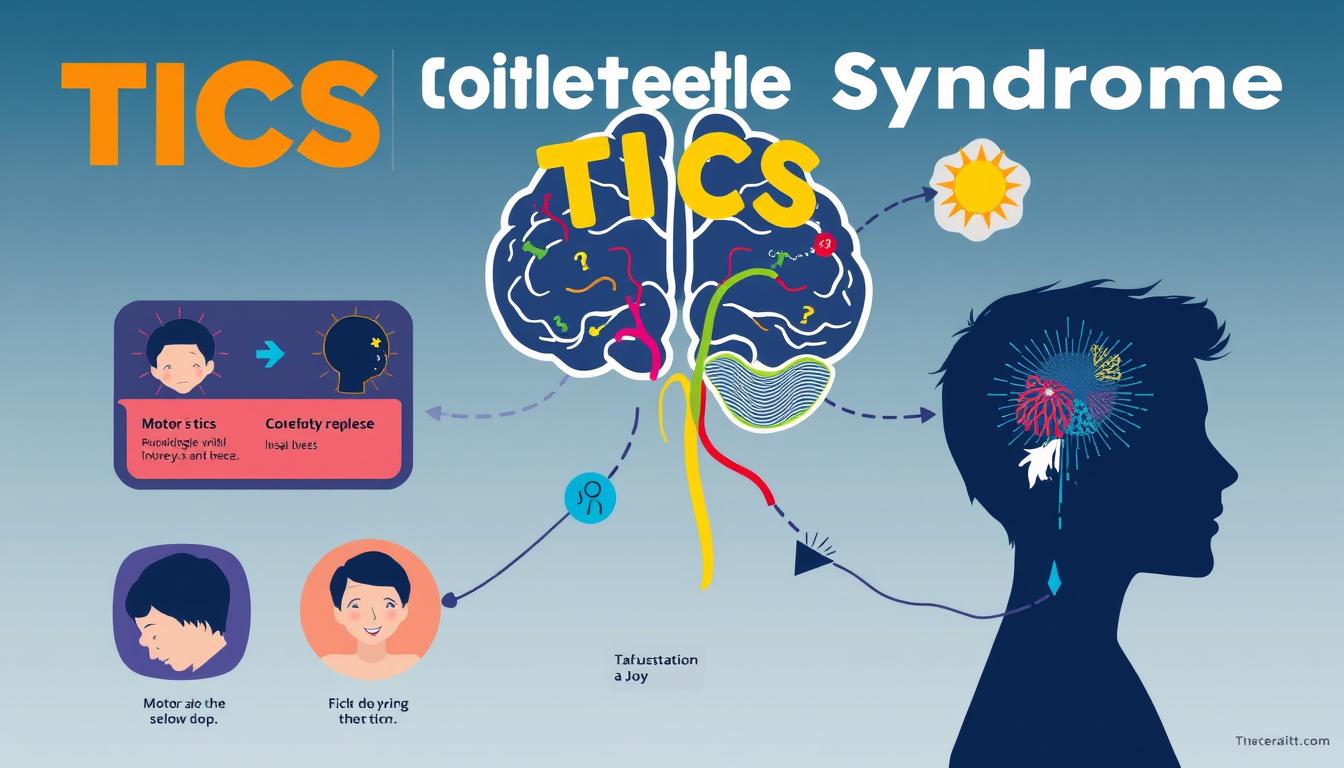Bipolar disorder is a complex mental health issue that affects many, mostly during the teen years. It’s important to know about teenage bipolar disorder and how to treat it early. This guide will cover the basics of bipolar disorder in teens, including how it differs from adult forms. We’ll also talk about common myths, how to spot symptoms, and what treatments are available.
Key Takeaways
- Bipolar disorder can present differently in adolescents compared to adults, requiring specialized understanding and approaches.
- Early detection and intervention are key to managing the condition and preventing long-term effects on a young person’s development.
- It’s important to recognize the unique signs of bipolar disorder in teens to offer the right support and care.
- Effective treatments, like medication and lifestyle changes, can help teens with bipolar disorder do well.
- Creating a supportive environment at home and school is critical for the well-being of teens with bipolar disorder.
What Is Early-Onset Bipolar Disorder?
Bipolar disorder is a complex mental health condition that can affect people of all ages, including teens. Early-onset bipolar disorder, also known as youth manic depression, is a form of the condition that typically starts in teenagers or even younger children. It has unique challenges and characteristics that are important to understand.
Key Differences Between Adult and Youth Bipolar
While the core symptoms of bipolar disorder are similar across age groups, there are key differences in how it presents in young people. Adolescents with early-onset bipolar tend to have more frequent and rapid mood swings. They also have a higher chance of mixed episodes, where manic and depressive symptoms happen at the same time.
Also, pediatric bipolar symptoms may include increased irritability, behavioral issues, and trouble in school and social settings.
Common Misconceptions About Teen Bipolar
- Bipolar disorder is just “normal” teenage moodiness – In reality, the mood swings and behavioral changes associated with youth manic depression are often more severe and disruptive than typical adolescent mood changes.
- Teens with bipolar are just being “dramatic” – The emotional and cognitive impacts of the condition are very real and can significantly impair a young person’s ability to function.
- Bipolar disorder only affects adults – Early-onset bipolar can occur in children as young as 6 or 7 years old, and is increasingly being recognized in the teenage population.
Understanding the unique aspects of early-onset bipolar is key for accurate diagnosis and effective treatment in adolescents. By addressing common misconceptions and recognizing the differences between youth and adult bipolar disorder, we can better support the mental health needs of this vulnerable population.
Recognizing Bipolar Disorder in Adolescents
Finding bipolar disorder in young adults is tricky because symptoms can look like normal teenage mood swings. But spotting it early is key for good treatment. We’ll look at how to recognize bipolar in teens and why teamwork is important.
Signs of bipolar in teens include clear manic and depressive episodes. During mania, they might act impulsively, spend recklessly, or use drugs. Depression shows as lasting sadness, hopelessness, and losing interest in fun activities.
These mood swings are often more intense and lasting than usual teen ups and downs. It’s vital to notice how often and how severe these mood swings are to tell bipolar from other teen mood issues.
“Bipolar disorder in adolescents can be a challenging and complex condition, but with early intervention and a complete treatment plan, many young people can manage their symptoms and thrive.”
Other signs include sleep problems, like not sleeping enough during mania or sleeping too much in depression. Changes in appetite, trouble focusing, and being more irritable or aggressive can also point to bipolar.
By spotting these mood and behavior changes, parents, teachers, and doctors can team up. This ensures teens with bipolar get the right help and treatment.
| Characteristic | Manic Episode | Depressive Episode |
|---|---|---|
| Mood | Elevated, euphoric | Depressed, sad |
| Energy | Increased, restless | Decreased, fatigue |
| Concentration | Difficulty focusing | Difficulty concentrating |
| Sleep | Decreased need for sleep | Excessive sleeping or insomnia |
| Appetite | Increased or decreased | Decreased or increased |
Warning Signs and Symptoms in Teenagers
As parents, educators, and healthcare providers, it’s vital to know the signs of pediatric bipolar symptoms and youth manic depression. Understanding these signs helps us support teenagers with this complex disorder. We can ensure they get the care they need.
Manic Episode Indicators
Teenagers in a manic episode may show different behaviors. These include:
- Increased energy, restlessness, and hyperactivity
- Reduced need for sleep, sometimes staying up for days at a time
- Impulsive decision-making and reckless behaviors
- Elevated mood, feelings of euphoria, or a sense of grandiosity
- Rapid speech and difficulty concentrating
Depressive Episode Markers
Bipolar in young adults may also have depressive episodes. These are marked by:
- Persistent feelings of sadness, hopelessness, or emptiness
- Decreased energy and fatigue
- Difficulty sleeping or oversleeping
- Changes in appetite, either a decrease or increase
- Difficulty concentrating or making decisions
- Thoughts of death or suicide
Mixed State Symptoms
Teenagers with bipolar disorder may also have a mixed state. This is a mix of manic and depressive symptoms. They might feel agitated, irritable, and restless. They may also have depressive thoughts and behaviors.
It’s key to remember that symptoms can vary. If you think a teenager might have youth manic depression, seek professional help.
“Early recognition and treatment of bipolar disorder in adolescents can significantly improve their quality of life and long-term prognosis.”
Risk Factors and Triggers for Teen Bipolar
It’s key to know the risk factors and triggers for Bipolar Disorder in Adolescents. Genetics are a big part, as teenage bipolar disorder often runs in families. If a parent or relative has bipolar, the risk for a teen goes up a lot.
Things like stressful events, trauma, or drug use can also play a part. Big changes, like moving or losing someone close, can set off manic or depressive episodes in teens with this disorder.
| Risk Factors | Potential Triggers |
|---|---|
|
|
The mix of these factors can be different for everyone. Spotting Bipolar Disorder in Adolescents early and managing it well is key. It helps teens deal with this challenge better and for the long term.
“The path to healing begins with understanding the complexities that shape a teenager’s journey with bipolar disorder.”

Diagnostic Process and Challenges
Diagnosing bipolar disorder in teens is complex. It involves many steps to accurately assess manic depression in youth. Understanding these steps is key to a proper diagnosis.
Medical Evaluations
The first step is a detailed medical check-up. Doctors will examine the teen physically and review their health history. They also run tests to check for any physical issues that might cause symptoms.
This approach helps make sure the teen’s behavior and mood changes aren’t due to a medical problem.
Psychological Assessments
Psychological tests are also important. Clinicians use interviews, mood questionnaires, and cognitive tests. These help understand the teen’s thoughts, feelings, and actions.
They look for patterns and timelines of manic and depressive episodes. This is key to diagnosing bipolar disorder.
Family History Considerations
Family history is also a big factor. Bipolar disorder often runs in families. Knowing the family’s mental health history helps doctors understand the teen’s risk.
By looking at the family’s history, doctors can better understand the teen’s situation. This helps in diagnosing bipolar disorder in teens.
Diagnosing bipolar disorder in teens is complex. It requires a detailed look at medical, psychological, and family factors. Understanding this process helps doctors and families work together. This ensures an accurate diagnosis and effective treatment for youth manic depression.
Treatment Options for Youth Manic Depression
Dealing with bipolar in teens is complex, but there are ways to help. We know it’s tough, but there are effective treatments. These can help teens manage their condition and do well.
For treating bipolar in teens, a mix of medicine and therapy is key. Medicines like mood stabilizers and antidepressants help control mood swings. But, finding the right medicine is important to avoid side effects.
Therapy is also vital for teen bipolar support. Therapies like CBT and family-focused therapy help teens cope. They also improve relationships and understanding of their condition.
| Treatment Approach | Benefits |
|---|---|
| Medication Management | Stabilizes mood, reduces acute episodes |
| Psychotherapy | Enhances coping skills, improves relationships |
| Lifestyle Modifications | Promotes healthy sleep, stress management |
| Support Systems | Fosters a nurturing environment for recovery |
Changing lifestyle habits also helps. Getting enough sleep, exercising, and managing stress are important. With support and professional help, teens can face their challenges with hope.
Treating bipolar in teens is a team effort. It needs a personal plan, commitment from everyone involved, and trying different therapies. Together, we can help teens with bipolar live better lives and reach their goals.
Medication Management and Monitoring
Managing bipolar disorder in teens needs a full plan that includes medicine. We’ll look at the medicines used, how to handle side effects, and ways to get teens to take their medicine.
Common Medications
For juvenile bipolar treatment and adolescent bipolar management, doctors often use mood stabilizers. These include lithium, valproic acid, and lamotrigine. They also use atypical antipsychotics like olanzapine, quetiapine, and risperidone. These medicines help balance brain chemicals that cause bipolar symptoms.
Side Effect Management
Medicines for teen bipolar support can have side effects like weight gain or feeling tired. Doctors and families work together to watch for these and adjust the medicine if needed. It’s important to talk often and check in regularly to keep the teen safe.
Treatment Compliance Strategies
- Involving the teen in the decision-making process and addressing their concerns about the medication
- Providing education and support to the family on the importance of consistent medication use
- Utilizing long-acting injectable formulations or extended-release tablets to improve adherence
- Implementing reminders, such as phone calls or text messages, to help the teen remember to take their medication
By working together with healthcare providers, families can manage juvenile bipolar treatment, adolescent bipolar management, and teen bipolar support effectively.
Supporting Teens with Bipolar at School
Going to school can be tough for teens with bipolar disorder. Parents, teachers, and mental health experts need to work together. We must make a supportive place for these students to do well.
It’s key to talk openly with school leaders and teachers. They should know about the student’s bipolar, what might upset them, and what they need to feel safe. This might mean flexible schedules, extra time on homework, a quiet spot for breaks, and help from the school counselor or nurse.
- Work with teachers to create a stable learning space with clear rules and routines.
- Push for a 504 plan or IEP to make sure the student gets the help they need.
- Ask the school to offer mental health help, like counseling or support groups, to help the student deal with bipolar.
Also, making the school a place where everyone understands and cares can really help. Teaching friends about bipolar, starting anti-stigma projects, and encouraging the student to join clubs can make them feel included and supported.
| Accommodations for Teens with Bipolar Disorder | Benefits |
|---|---|
| Flexible scheduling and deadlines | Helps students manage their energy and mood swings |
| Access to a quiet space for breaks | Gives a calm place for students to manage their feelings |
| Collaboration with school counselor or nurse | Provides ongoing support and checks on the student’s well-being |
By creating a supportive and caring school environment, we can help teens with bipolar disorder face their challenges and reach their goals. With the right support and adjustments, these strong young people can excel in school.

Family Dynamics and Home Support Systems
Handling teen bipolar support and adolescent bipolar management affects the whole family. When a family member gets Bipolar Disorder in Adolescents, creating a supportive home is key. This environment should encourage understanding, open communication, and coping strategies.
Parents are key in helping teens with bipolar disorder. It’s important to learn about the condition, spot signs, and plan for managing episodes. This helps support our child’s overall health.
Siblings can also help a lot in the healing process. By talking openly, showing empathy, and supporting emotionally, they become important helpers. This support is vital for reaching stability and recovery.
Having a routine, setting clear rules, and promoting healthy habits helps a lot. Regular family meetings where everyone’s needs are discussed strengthen family bonds. This unity is important for support.
| Key Strategies for Family Support | Benefits |
|---|---|
|
|
By working together and creating a supportive home, we can help our teenagers with Bipolar Disorder in Adolescents succeed. This support is essential for overcoming challenges.
“A supportive family can make all the difference in the life of a teenager with bipolar disorder. With love, understanding, and the right strategies, we can help our children achieve stability and reach their full potentia.”
Lifestyle Changes and Coping Strategies
Managing bipolar disorder in teens is tough, but it’s doable with the right steps. Teens can learn to handle their condition better with lifestyle changes and coping strategies. Here are some tips to help them feel better and manage their symptoms.
Prioritize Sleep Hygiene
Getting enough sleep is key for teens with bipolar disorder. They should aim for 8-10 hours of sleep each night. Here’s how:
- Stick to a regular sleep schedule, even on weekends.
- Make their bedroom a calm place without distractions.
- Stay away from screens and caffeine in the evening.
- Try relaxation techniques like deep breathing or meditation to sleep better.
Manage Stress Effectively
Stress can trigger mood episodes in teens with bipolar disorder. To reduce stress:
- Find and tackle the sources of stress, like school or personal issues.
- Do regular exercise, like yoga or sports, to release tension.
- Use mindfulness and relaxation, like journaling or listening to calming music.
- Get support from friends, family, or mental health experts.
Build a Strong Support Network
Having a strong support system is vital for teens with bipolar disorder. Encourage them to:
- Connect with friends who get what they’re going through.
- Talk openly with family about their struggles and needs.
- Join support groups, online or in-person, to share and learn.
- Keep in touch with their mental health team, like therapists and psychiatrists.
By making these lifestyle changes and using these coping strategies, teens with bipolar disorder can manage their condition better. This can greatly improve their quality of life.

Conclusion
Bipolar Disorder in Adolescents is complex and challenging. But, with the right support and treatment, young people can manage their symptoms and thrive. Early detection and a complete approach are key, addressing both medical and psychosocial aspects.
Understanding teen bipolar support is vital. We must educate ourselves on warning signs and risk factors. By advocating for personalized care, we empower adolescent mood disorders to reach their full promise. This journey needs patience, resilience, and a deep commitment to our young people’s well-being.
You are not alone. Many resources, like support groups and specialized healthcare providers, are here. They are dedicated to ensuring every young person with bipolar disorder gets the care they need. Together, we can break down stigma, advance research, and offer the compassionate support our teens deserve.



